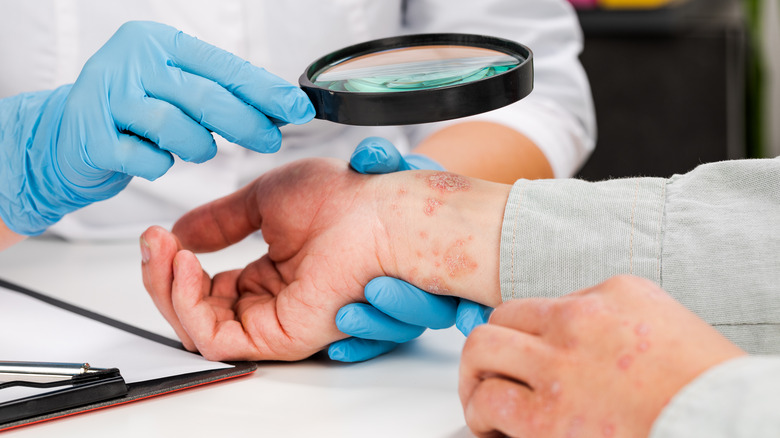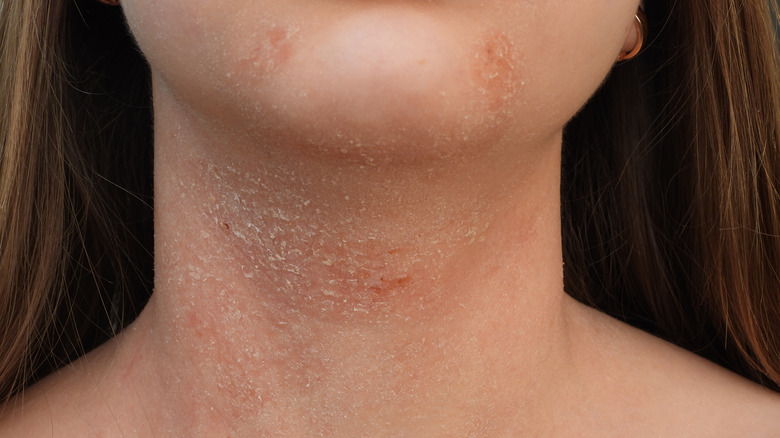Atopic Dermatitis Vs. Eczema: What's The Difference?
As the second most common skin condition in the United States, according to the American Academy of Dermatology Association, atopic dermatitis affects approximately one in ten people during their lifetime. While atopic dermatitis is most commonly developed before the age of five, the skin condition can appear during puberty or as an adult.
But as VeryWell Health notes, the term atopic dermatitis is often used interchangeably with eczema. In general, dermatitis refers to inflamed skin, while eczema is used to describe a group of skin conditions that present with symptoms like itchy, dry or inflamed skin, according to Healthline.
The addition of "atopic" to a dermatitis diagnosis means it falls under the eczema bracket, and is actually the most common type of eczema according to Family Doctor. Atopic refers to an "inherited tendency to develop dermatitis, asthma, and hay fever" as the medical advice site notes, and atopic dermatitis in general usually starts during infancy and can continue into childhood. While many outgrow the condition, adults can still experience flare-ups where patches of atopic dermatitis can reappear.
Many other forms of dermatitis are confused with eczema
Per Medical News Today, atopic dermatitis isn't the only skin condition that falls under the eczema bracket. Different types of the condition like neurodermatitis and stasis dermatitis also share similar symptoms to atopic dermatitis, which include an itchy, inflamed or rash-like appearance.
Atopic dermatitis in particular usually presents with dry and itchy skin, per Family Doctor, before developing into a rash that's "very red, swollen, and sore." A clear fluid may potentially leak from the affected area, which causes the rash to crust over and form a scale-like appearance that is commonly associated with eczema (via Web MD). If you have atopic dermatitis, or eczema in general, you'll most likely find patches of affected areas on the hands, creases of the elbows and knees, as well as the face and scalp according to the UK's National Health Service (NHS).
The root cause of atopic dermatitis and eczema is still unknown, but it's easy to diagnose and there are simple ways to manage symptoms and flare-ups by visiting your primary care doctor or a dermatologist, as VeryWell Health notes.

